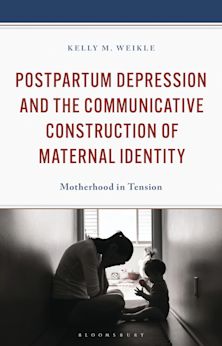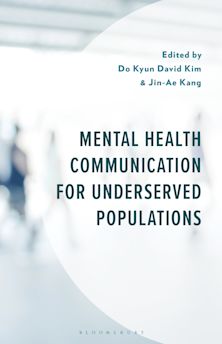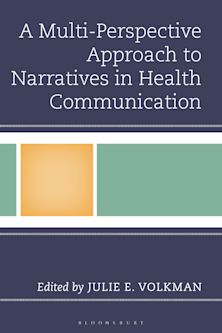Mapping Environmental Risk and Energy Communication
Ecoculture in Energy Risk
Mapping Environmental Risk and Energy Communication
Ecoculture in Energy Risk
This product is usually dispatched within 1 week
- Delivery and returns info
-
Free US delivery on orders $35 or over
Description
As the rise of the Anthropocene has led to serious deliberation about how energy is best produced and distributed in a world pressured by both the depletion of natural resources and global climate change, advances in technology have enabled new systems of extracting energy like High Volume Hydraulic Fracturing (HVHF), commonly known as fracking, that complicate these discussions. In this book, Barbara George explores how citizens impacted by HVHF tell stories about environmental risks, the conflict they experience in attempting to articulate these risks, and the hope for a post-carbon future in which HVHF is banned. Deep ideologies linked to history, coal, and industry permeate areas like the Rust Belt and Appalachia and, George argues, create “frames” that encourage and advocate for HVHF and make it difficult for publics in these locales to find a platform to tell their stories in a meaningful way. This book offers a case study of three communities in the United States – New York, Pennsylvania, and Ohio – and how each community frames HVHF environmental and health risks differently based on their differing sociocultural histories. Scholars of communication, environmental studies, history, and sociology may find this book of particular interest.
Table of Contents
Chapter 2 Frames: Stories of Environmental Regulatory Bodies and Attempts to Deliberate About Risk
Chapter 3 - Linguistic Frames: Stories from Ohio and Pennsylvania and the difficulty of revealing environmental risk
Chapter 4: Linguistic Frames: Stories of environmental activism, New York, changing policy and practice
Ch. 5 Possibilities for Reframing Energy discourse, Positive Discourse Analysis
Product details
| Published | Feb 05 2025 |
|---|---|
| Format | Hardback |
| Edition | 1st |
| Extent | 166 |
| ISBN | 9781666926484 |
| Imprint | Lexington Books |
| Illustrations | 3 BW Illustrations, 8 Tables |
| Dimensions | 9 x 6 inches |
| Series | Environmental Communication and Nature: Conflict and Ecoculture in the Anthropocene |
| Publisher | Bloomsbury Publishing |
Reviews

ONLINE RESOURCES
Bloomsbury Collections
This book is available on Bloomsbury Collections where your library has access.


































